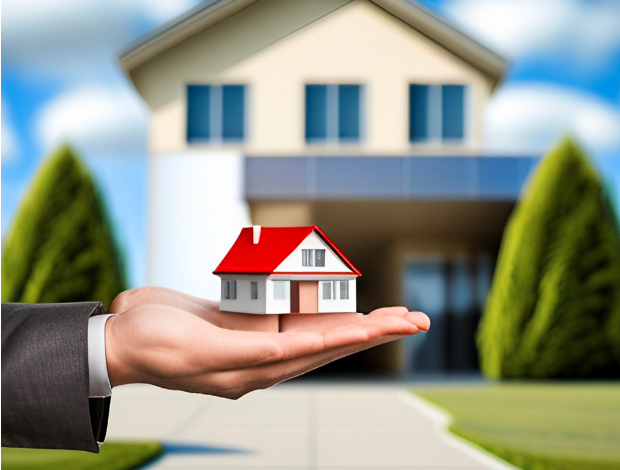The Role of Property Managers in Ensuring Tenant Safety

Property managers play a crucial role in the real estate industry as the bridge between property owners and tenants. One of their most important responsibilities is ensuring tenant safety. This encompasses a broad range of duties, from maintaining the physical integrity of buildings to implementing emergency procedures and fostering a community atmosphere. This blog will explore how property managers ensure tenant safety and why these measures are essential.
Regular Maintenance and Inspections
Routine Inspections
Regular inspections are vital to identify and rectify potential hazards before they become significant issues. Property managers schedule periodic checks of common areas, building exteriors, and individual units to ensure everything is in good working order.
Preventive Maintenance
Preventive maintenance involves regularly servicing building systems, such as HVAC, plumbing, and electrical systems. This helps prevent unexpected breakdowns and reduces the risk of accidents caused by system failures.
Addressing Repairs Promptly
When tenants report maintenance issues, property managers must respond swiftly. Delayed repairs can lead to safety hazards, such as water leaks causing mould growth or faulty wiring, posing fire risks.
Property Management Tips for Rentals:
- Keep a detailed maintenance log for each property to track repairs and regular upkeep.
- Set reminders for routine maintenance tasks to ensure they are completed on time.
- Develop a list of trusted contractors and service providers to respond quickly to maintenance issues.
Security Measures
Access Control
Property managers implement access control systems to prevent unauthorized entry. This can include electronic vital fobs, secure entry gates, and intercom systems. These measures help ensure that only residents and authorized personnel can access the premises.
Surveillance Systems
Installing security cameras in common areas, parking lots, and entrances of retail properties helps deter criminal activity and provides valuable evidence in case of incidents. Property managers monitor these systems to ensure they are functioning correctly.
Lighting
Adequate lighting in hallways, stairwells, parking areas, and outdoor spaces is essential for preventing
accidents and deterring criminal activity. Property owner and managers ensure all lighting fixtures on investment property are operational and replace bulbs as needed.
Property Management Tips for Rentals:
- Conduct regular security audits to identify potential vulnerabilities.
- Encourage tenants to report any suspicious activity immediately.
- Consider implementing a neighbourhood watch program within the rental community.
Emergency Preparedness
Fire Safety
Property managers are responsible for ensuring that all fire safety equipment, such as smoke detectors, fire extinguishers, and sprinkler systems, are regularly inspected and maintained. They also conduct fire drills and provide tenants with information on evacuation procedures.
Natural Disasters
Property managers must prepare for natural disasters like earthquakes, hurricanes, or floods, depending on the business’ location. This includes creating emergency plans, securing the building structure, and educating potential tenants on safety protocols.
Medical Emergencies
Property managers and agents should be trained in basic first aid and CPR. They expert agents should also ensure that emergency contact numbers are readily available and that tenants know where to find first-aid kits and defibrillators.
Property Management Tips for Rentals:
- Create an emergency contact list and distribute it to all tenants.
- Develop and share a comprehensive emergency plan with detailed evacuation routes.
- Regularly update emergency procedures and conduct drills to keep tenants informed and prepared.
Tenant Communication and Education
Clear Communication Channels
Effective communication between property managers landlords and tenants is crucial for safety. Property managers should provide multiple channels for tenants to report issues, ask questions, and receive critical updates managing property itself, such as email, phone, and online portals.
Safety Education
Regularly educating residential tenants on safety practices can significantly enhance their well-being. This includes providing information on screening tenants how to use appliances safely, what to do in an emergency, and how to recognize and report suspicious activity.
Community Building
Fostering a sense of community among tenants can contribute to overall safety. Property managers can organize community events and encourage tenants to get to know each other. A tight-knit community is likelier to look out for one another and promptly report any concerns.
Property Management Tips for Rentals:
- Use digital platforms to maintain open lines of communication with tenants.
- Send out monthly newsletters with safety tips and essential updates.
- Host regular community meetings or events to build relationships and trust among tenants.
Legal and Ethical Responsibilities
Compliance with Laws and Regulations
Property managers must stay informed about local, state, and federal regulations related to building safety, health codes, lease, and leases and tenant rights. Compliance with these laws ensures tenant safety and protects property owners from legal liabilities.
Ethical Considerations
Ethical property management goes beyond legal compliance. Property managers should act with integrity, prioritizing tenant well-being and maintaining transparency. This builds trust and fosters a positive living environment.
Property Management Tips for Rentals:
- Regularly review and update property management practices to ensure compliance with current laws.
- Keep detailed records of all safety inspections, maintenance, and tenant communications.
- Attend professional development courses to stay updated on industry best practices and legal requirements.
Technological Advancements
Smart Home Technology
Incorporating smart home technologies into commercial properties, can enhance tenant safety. Smart locks, security cameras, and environmental sensors (e.g., for smoke, carbon monoxide, and water leaks) can provide real-time alerts and allow for quicker responses to potential issues.
Property Management Software
Using advanced property management software can streamline maintenance requests, track repairs, and ensure that inspections are conducted on schedule. This software can also facilitate tenancy agreements and better communication between property managers and tenants.
Property Management Tips for Rentals:
- Invest in reliable property management software to manage operations efficiently.
- Stay informed about emerging smart home technologies that can improve tenant safety.
- Regularly evaluate and update technological tools to meet current safety and operational needs.
Frequently Asked Questions
What should tenants do if they notice a safety hazard in their rental property?
Tenants should immediately report any safety hazards to their own leasing agent or property manager using the designated communication channels, such as a maintenance request form, email, or phone call. Prompt reporting helps ensure the issue is addressed quickly and prevents accidents.
How often should property managers conduct safety inspections?
Property managers should conduct safety inspections for common areas and building systems at least once every quarter. Individual unit inspections can be performed annually or as needed based on tenant reports and maintenance schedules.
What kind of emergency preparedness training should property managers have?
Property managers should have basic first aid and CPR training and knowledge of fire safety, natural disaster response, and emergency evacuation procedures. This training helps them effectively handle emergencies while managing properties and provide guidance to tenants and clients.
Read also: Crafting Your Dream Home in Gold Coast: The Artistry of Custom Home Builders
How can tenants contribute to their safety in a rental property?
Tenants can contribute to their safety by following the landlord or property manager’s guidelines, reporting maintenance issues promptly, participating in safety drills, keeping emergency contact information handy, and staying informed about the company’ safety practices and procedures.
What standard security measures do property managers implement in rental properties?
Standard security measures include:
- Installing surveillance cameras.
- Using electronic access control systems.
- Maintaining adequate lighting in common areas.
- Conducting background checks on tenants.
- Fostering a sense of community to encourage vigilance.
How do property managers stay updated on safety regulations and best practices?
Property managers can stay updated on safety regulations and best practices by attending industry conferences, participating in professional development courses, subscribing to relevant publications, joining property management companies and associations, and networking with other professionals in the field.
Conclusion
Ensuring tenant safety is a multifaceted responsibility that requires diligence, proactive measures, and a commitment to continuous improvement. Property managers play a pivotal role in creating a safe and secure living environment through regular maintenance, adequate security measures, emergency preparedness, tenant education, legal compliance, and the adoption of modern technologies. By prioritizing safety, property managers protect tenants and enhance the overall value and reputation of the property they oversee.
Adopting these property management tips can help residential property managers run more efficient and safer rental properties, ensuring a positive experience at investment properties for tenants and property owners.





